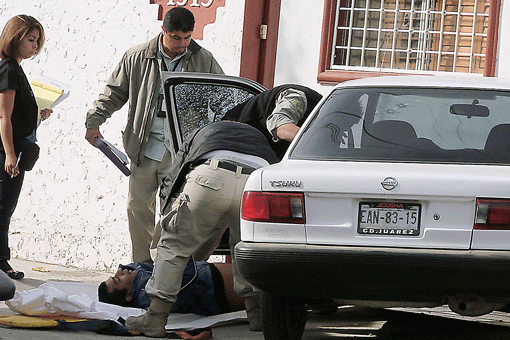More than 25 years after democratization in the region, Latin American reporters have learned, often to their peril, that the system does not provide enough safeguards against the enemies of the press. Despite the emergence of a style of watchdog journalism that has been essential for strengthening institutions in young democracies, large and powerful criminal groups have persecuted and targeted journalists in a manner that evokes some of the worst abuses against freedom of expression committed by the military dictatorships of the past.
A growing number of killings, disappearances and threats from violent gangs are eradicating investigative journalism in many parts of the hemisphere. According to statistics compiled since 1992 by my organization, the Committee to Project Journalists (CPJ), Colombia and Mexico are the most dangerous places in the region to work as a journalist. Seventy-two reporters have been killed since 1992 in Colombia, at least 42 murdered for their work. In Mexico, 44 journalists have been killed, at least 19 in direct reprisal for their work. Since 2008, eight journalists have disappeared. In Brazil, 20 reporters have been killed since 1992, 16 slain for their work.
Reporters who challenge criminals by digging into their illegal activities are paying a heavy price, and they are largely unprotected. The absence of state control over large areas where criminal organizations are fighting for territorial supremacy has made the press a vulnerable target. The increased influence of organized crime over authorities has further complicated matters. Drug traffickers, paramilitary groups, guerrilla forces, and violent youth gangs, often complicit with law enforcement and officials, are directly targeting the press in Mexico and in Central and South America.
Mexico: Bad Gets Worse
Today, Mexico is the deadliest country in the Americas for the press. An estimated 15,000 to 17,000 drug-related murders have occurred since President Felipe Calderón took office in December 2006 and began waging a campaign against the narcotics cartels. Such figures are more reflective of a war zone than a vital democracy, and they have had a devastating effect on freedom of expression, a fundamental right guaranteed under the Mexican Constitution.
Among the consequences of this wave of unprecedented violence against the press is the self-censorship adopted by scores of reporters and news outlets. Increasingly, Mexican journalists are avoiding hard news about the drug cartels for fear of physical retribution against themselves and their families. The failure of Mexican authorities to prosecute crimes against the press, often because of pressure from cartels, perpetuates a climate of impunity that has paralyzed civil society.
Ciudad Juárez, across the border from El Paso, Texas, is an infamous example. The city, which saw more than 2,500 execution-style killings in 2009, is on the front lines of the government’s offensive against the drug-trafficking organizations. It also appears to be on the front lines of the cartels’ simultaneous war against the press.
Local reporters say that the November 2008 killing of Armando Rodríguez Carreón, a veteran crime reporter for El Diario—the largest newspaper in Ciudad Juárez and Chihuahua City—was a message sent to all working journalists in the city. Rodríguez was shot to death by unidentified attackers while sitting in a car parked in his driveway. His eight-year-old daughter, who was in the car at the time of the attack, was unharmed.
The murder persuaded many of Rodríguez’ colleagues to alter the way they cover their city’s biggest stories. Editors admit it is impossible to conduct in-depth, investigative reporting on drug-trafficking. “To survive, we publish the minimum,” says Alfredo Quijano, editor of Norte de Ciudad Juárez, the border city’s second-largest daily. Crime reporters are very cautious and only publish a very small part of what they know, often providing no analysis or context, and avoiding sensitive issues…





